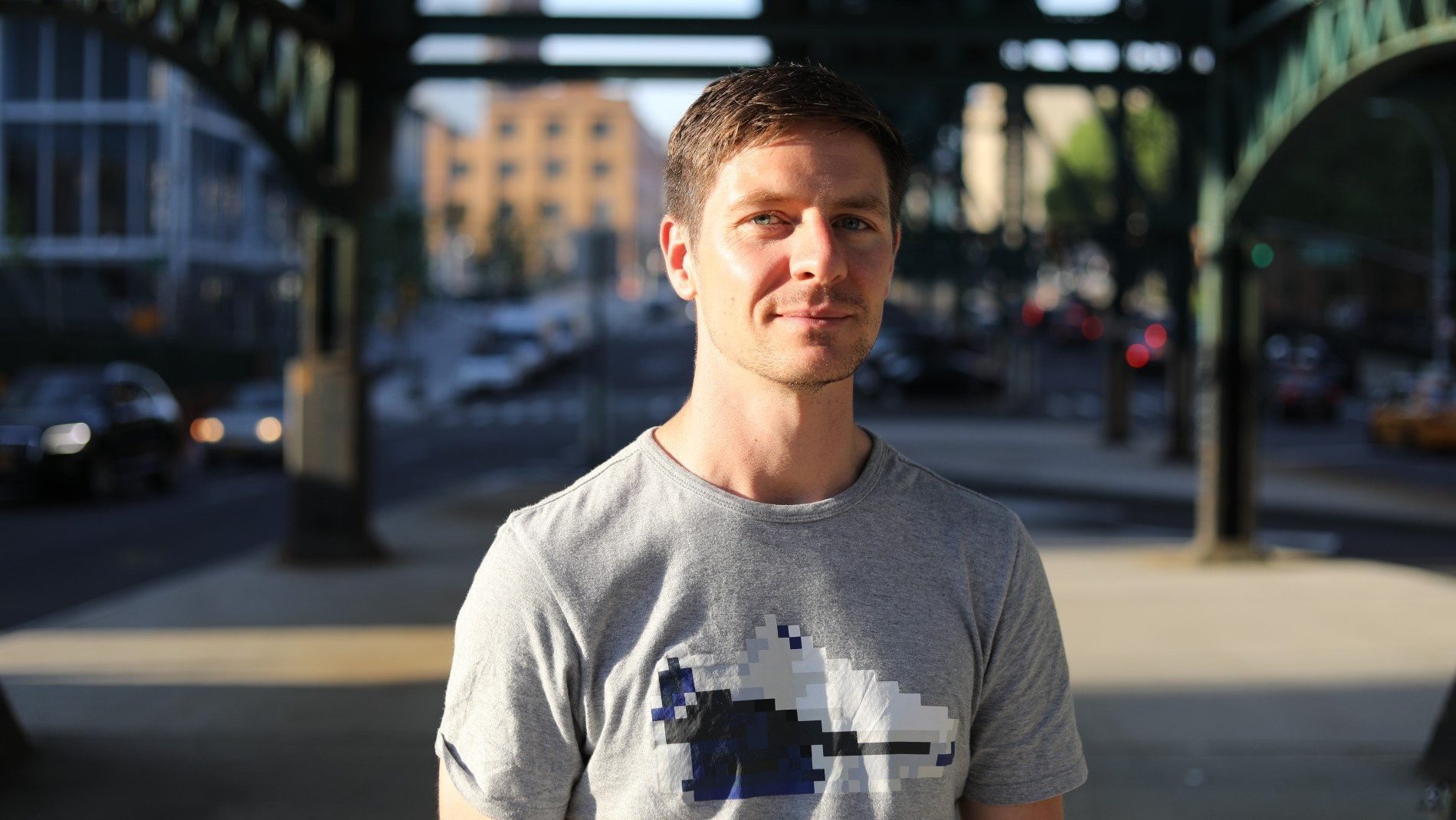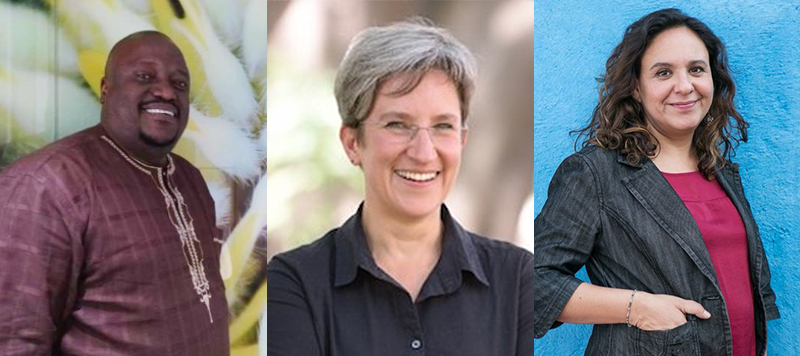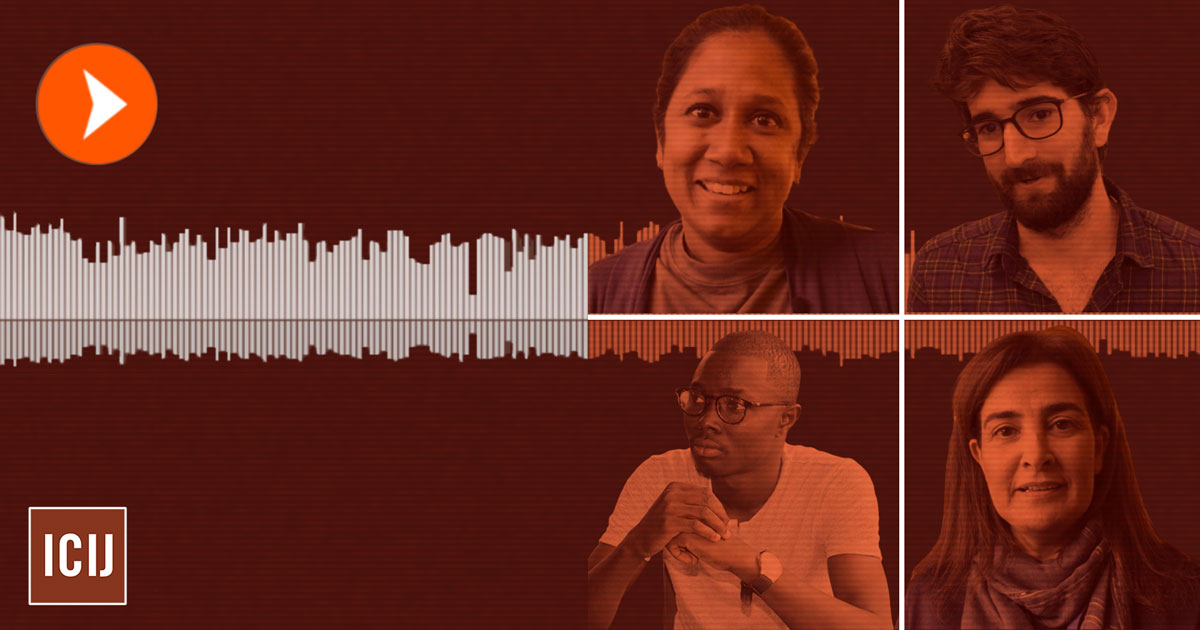MEET THE INVESTIGATORS
Frontlines to ICIJ: ‘None of us survive on our own’
What Maud Beelman learned as a war correspondent became the heart of all future ICIJ investigations – after she took the helm as the organization’s first director.
The International Consortium of Investigative Journalists collaborates with hundreds of members across the world. Each of these journalists is among the best in his or her country and many have won national and global awards. Our monthly series, Meet the Investigators, highlights the work of these tireless journalists.
This month, Spencer Woodman speaks with Maud Beelman, an investigative journalist who is now teaching younger generations what she learned as a war correspondent, a local reporter, and as the first director of ICIJ. Follow her on Twitter here.
We have provided a transcript of the monthly podcast below.
Amy: Hi, I’m Amy Wilson-Chapman, from the International Consortium of Investigative Journalists.
Welcome to our new podcast – Meet the Investigators.
To tell the world’s most important stories, we collaborate with the best investigative journalists from across the globe. We think of them like family. We hope this podcast will give you a chance to get to know them too. You’ll hear firsthand what it’s like to pursue the truth and uncover hidden facts in every corner of the globe.
This month we kick our series off with a journalist who has a special place in ICIJ’s heart.
Maud Beelman: my name is Maud Beelman, I’m from the United States.
Amy: She spoke with ICIJ’s reporter Spencer Woodman.
Spencer: Maud is currently the executive editor of the Howard Center for Investigative Journalism at Arizona State University. But, she was also ICIJ’s founding director and led our news organization from its start in 1997 to 2004.
Maud: People who know me know that I jokingly say, but maybe not so jokingly, that when I die the first line of my obit’ has to have ICIJ in it.
Spencer: I’ve known Maud for quite some time but it was great to learn about her career. Listen to what she told us about her start.
Maud: I was in high school as Watergate was happening and the Vietnam War. I took a journalism course, my sophomore year in high school, and I was hooked.
I became passionate, passionate about journalism. I thought it was a way to do something with my life, that might be good for humanity, and I thought it was an amazing way that I would be able to continue learning throughout my life.
Amy: It was a lesson from her days as a brownie – a precursor for the Girl Scouts – that stuck with her for good.
Maud: The motto was, ‘Leave the place that you’ve been better than you found it.’ That’s kind of been, that’s kind of how I’ve tried to live my life ever since, and journalism is a good vehicle to do that.
Spencer: I actually didn’t know until more recently that you were a foreign correspondent and covered conflicts in Iraq, Yugoslavia and elsewhere. Can you tell me a bit about your life covering conflicts around the world?
Maud: So, there have been two great loves of my life in journalism, and one has been foreign correspondency and one has been investigative reporting. And if you think about it there, those are two quite divergent forms of journalism. To be a successful foreign correspondent, you have to be a very good generalist and you have to be a quick study and to be a good investigator, you have to be able to dive deep and stay focused.
Amy: But the path to reporting overseas wasn’t straightforward. As a rookie reporter, Maud learned the ropes covering national news in the United States for the Associated Press.
Maud: My coverage area was all of the central part of Pennsylvania, so north to the New York border, south to the state capitol, east almost to Philly and West almost to Pittsburgh. So I had a really big coverage area.
And it’s where I learned, I think, first, how to develop stories, and how to write stories, in a way that would be of interest to very large audiences.
Amy: Though Maud loved her job, she always had her heart set on becoming a foreign correspondent, and studied a foreign language to help reach her dream..
Maud: I was studying German at the time as my language much to everybody’s amusement, because everybody thought the story in Europe was over. This would have been 1987 to 1989.
When the Berlin Wall came down… I was the one who had some German language skills. And so, within pretty short order by April of 1990, I was in Germany and that was the start of my career as a foreign correspondent.
Amy: Maud moved to Bonn, the capital of what at the time was West Germany. A few months later, the Gulf War broke out and the Kurdish refugee crisis along the Iran, Iraq border was becoming huge news.
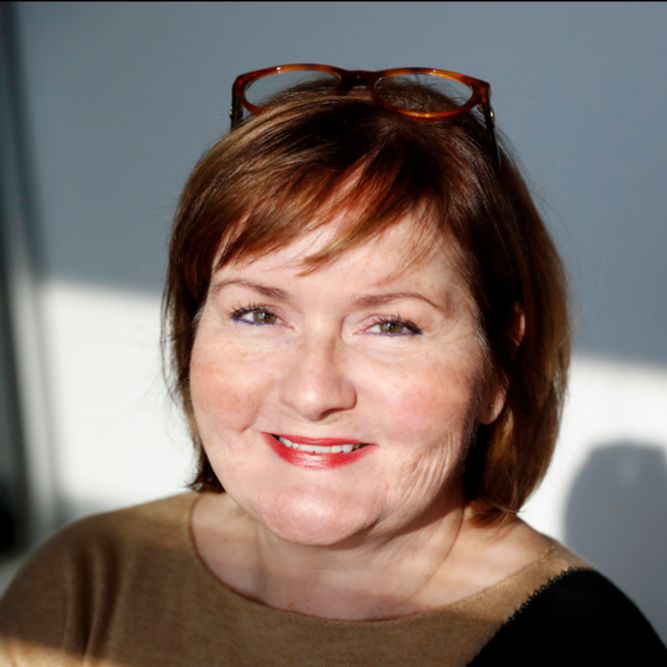
Maud: And so, I asked, if I could go help out, I’d do anything. And I was the youngest foreign correspondent at the AP (Associated Press) in the field at the AP at the time, or the newest to the field.
and of course they said, No, you know, everybody was raising their hand to go do this.
Amy: But then she got her chance – the agency needed someone to cover the situation in Iran.
Maud: I just jumped on the opportunity. At the time, Germany and Iran were trying to normalize relations and the German Red Cross was preparing to make its first aid flight into Iran to help the Kurdish refugees.
It would have been – and it was – the first Western aid flight to land in Tiran.
I was the only passenger on a Soviet Antonov 124 carrying tons of German aid goods to Iran for the Kurdish refugees and I spent two-and-a-half, three weeks maybe, traveling around Iran along the border, telling the story of the plight of the Kurdish refugees.
Amy: It was during this time that Maud really began to hone her skills – and learn some important lessons.
Maud: I did a lot of things that were stupid. I ended up getting put under house arrest along the border for doing, you know, just ill, conceived things like traveling alone or talking back to a man.
When I came out, the AP said: ‘Do you want to go to Iraq?’ And I said, ‘yes.’
Amy: After reporting in Iraq, Maud headed back to Germany where she was just in time to witness the country’s unification. But then another war broke out – and off she went.
Maud: I was just so taken with crisis reporting that within a month, when the war in Yugoslavia broke out, I once again raised my hand and said “can I go help?”
Spencer: What prepared you for reporting in a war zone?
Maud: There was a time, not that long ago, when news organizations did not train journalists for conflict reporting. So I got no training.
I’m not speaking of that nostalgically, I think it is much better nowadays that journalists receive training before they go in.
I remember calling up a friend of mine who had been in Vietnam and asking him, how could I tell the difference between incoming and outgoing mortar fire?
You know, we all looked out for each other and you tried to learn the art of trusting your gut instinct. And there were just things that you learn to do and not to do to stay alive.
But nothing could prepare you for, you know, the human carnage that later became a hallmark of the war in the Balkans.
Amy: It was her reporting in the former Yugoslavia that led her to ICIJ.
While in the field, she covered the America’s involvement in the supply of weapons to the Bosnians. What she realized is now at the heart of every ICIJ investigation: nothing beats having local reporters on the ground who can work with colleagues from their respective homes.
Maud: It was a story where you needed reporters on the ground in the field where it was happening and you needed to marry up those reporters with reporters in the national capitals around the world.
I had a lot of trouble trying to report out that story, I ultimately applied for and got an Alicia Patterson fellowship, which allowed me to get back to the United States and do the second half of the reporting.
But that experience, what I call the trying to play tennis with nobody on the other side of the net, really imprinted on me the problems of doing cross border investigative reporting.
Amy: When Maud saw a job ad for a director of ICIJ, the position seemed like a perfect match for her.
At the time ICIJ was part of the Center for Public Integrity. CPI is another nonprofit news organization based in Washington, D.C., and it was also founded by award-winning journalist Chuck Lewis.
Maud: And they were looking for somebody with an international reporting background, some investigative reporting background, language skills, and I remember that it said women and minorities are encouraged to apply.
Amy: ICIJ was born in 1997 with the idea of investigating the world’s most important stories that don’t stop at national borders.
Maud: I knew that there were important cross border stories that weren’t getting told because of the hurdles and the obstacles to having journalists not working together in a variety of different places.
And so, I signed up! And from that point forward, the funding proposal and my own personal experiences were what informed how we went about creating ICIJ, which, by the way, I gave it the acronym ICIJ on day one, because I thought nobody’s going to be able to say, in one breath the International Consortium of Investigative Journalists at the Center for Public Integrity.
Amy: Unfortunately, 30 years later ICIJ’s full name – the International Consortium of Investigative Journalists – remains a mouthful, but it’s also a clear message about our focus; collaboration.
Maud: You can’t have a consortium, right, without members. So the mission was, let’s find the best investigative reporters around the world.
Amy: But Where to start?
Maud and her colleagues began by identifying international reporters who had received fellowships at Harvard or other Ivy League schools for their outstanding work in their native country.
From that moment on, it was a combination of word-of-mouth and coincidences that grew the teams.
Maud: The very first project we did with ICIJ was the tobacco investigation and I was talking to a source and the source mentioned to me that he had just hung up with an Italian investigative reporter who was asking some of the same questions that I was asking.
And so, I asked for that journalist’s name. I did some research on his background ahead of time to be sure that they were of the caliber of journalists we were looking for an ICIJ, and they were and we invited them.
That’s Leo Sisti who has been the magnificent member of ICIJ from the very beginning.
Spencer: We love Leo.
Maud: Yes!
Spencer: How did that investigation turn out?
Maud: Great, in the six years I was running ICIJ we did six cross border investigations. Two of them involved tobacco smuggling, one was just setting the stage to prove that tobacco smuggling by the tobacco multinationals was in fact occurring and then the second one was to show how they were intersecting with organized crime.
Amy: You can read all of ICIJ’s investigations into the tobacco industry on ICIJ’s website: icij.org.
Maud: And the tobacco project basically grew out of me looking for some topics that would lend itself to cross border investigation.
The time period here is not too much too long after the attorneys’ general settlement in the United States, that settled all the different lawsuits against the tobacco companies with regard to public health and false advertising.
So I just started doing some reporting and learned that we might want to take a look at what the tobacco companies were doing abroad because the attorneys’ general settlement did not govern their activities abroad.
That reporting led me to Hong Kong epidemiologist, who was in Washington for a conference and I can still see her standing there and, I’m running down my list quite dutifully there’s this issue and that issue and so forth and so on.
So, then I stop, and I say: ‘Is there anything that I have neglected to mention that you think is important that I should know about?’ And she paused, and then she said ‘no, I think you’ve got most of it.’
And I’m paraphrasing here, obviously, ‘except for the fact that about a third of all cigarettes that get exported annually don’t show up on any import rolls.’
I looked at her blank slate because I didn’t know what she was telling me.
The way the conversation, then, unspooled was that there had long been a suspicion in the anti-tobacco movement that tobacco companies were smuggling their cigarettes around the world to evade national taxes, and, in some cases, to reach markets at a lower price point.
And they’d never actually been able to prove it – and so that was the reporting challenge.
Then we were on, can we prove this?
What happened was, as a result of the U.S. tobacco companies’ settlement, that affected only their operations in the United States, a couple of records depositories were created to house all of the internal documents that the companies had been forced to turn over to lawyers during discovery.
One of those was the famous Minnesota depository of records, but we learned that there was another depository of records in Guildford, England.
Amy: Investigating an international topic required an international team and so Maud assembled a group of journalists from Colombia, the U.K., Canada, Italy and other countries.
Maud: And so suddenly by bringing together journalists from different countries around a set of documents, internal documents that had been released under a court order but stashed away in the remote environs of England. Suddenly we had archival proof that the companies knew they were smuggling their cigarettes to the black market.
And then we just took it from there.
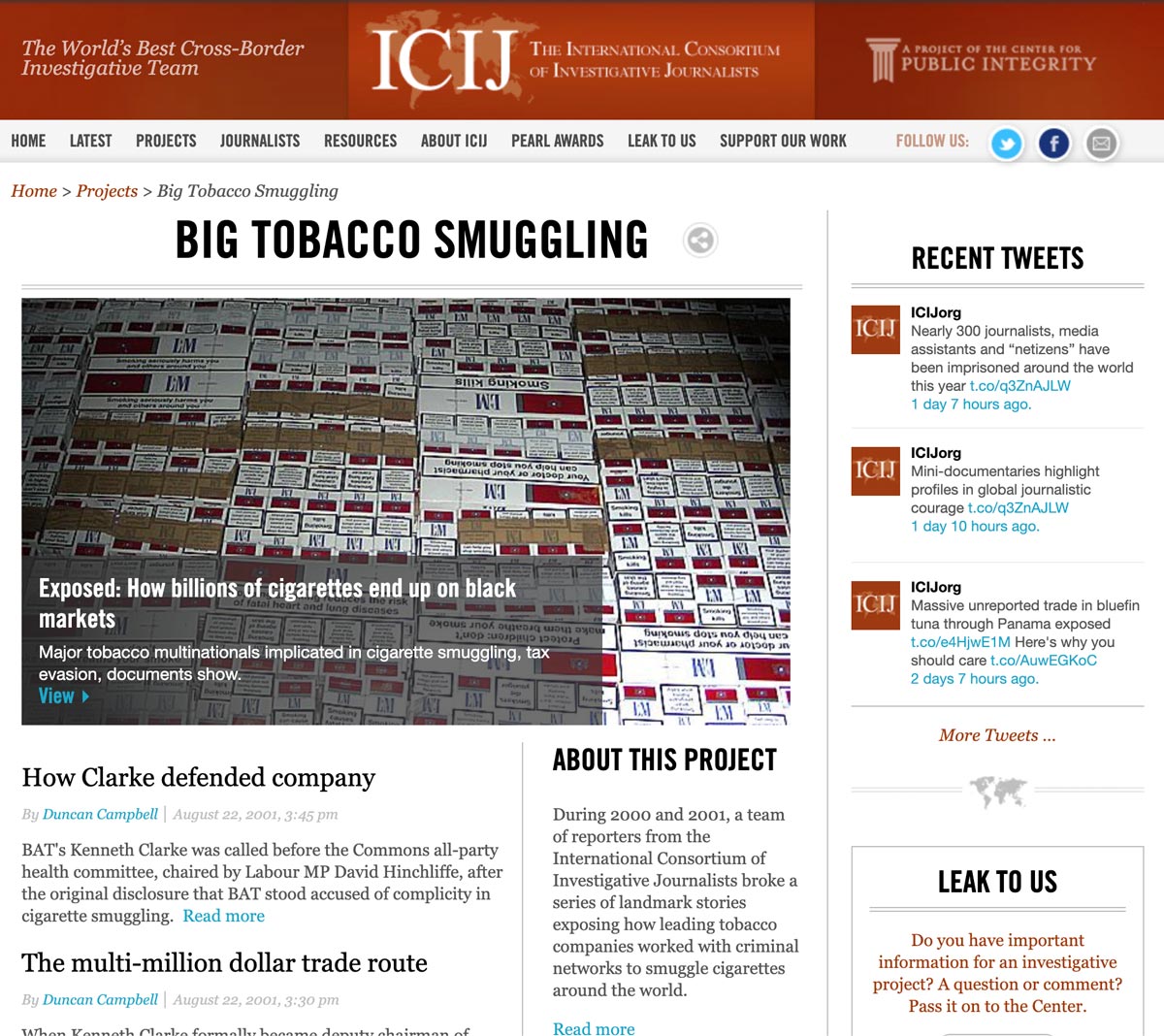
Amy: The investigation was published by the Guardian and other media organizations across the world, but in the United States they didn’t want to run it because they weren’t quite sure who this news organization called ICIJ was.
Still today the tobacco investigation remains one of Maud’s favorites.
Maud: It’s sort of like my first born.
It took up four pages of The Guardian and editorial; a feature on ICIJ; the British Parliament convened public hearings; ICIJ went and testified; and then we later learned from one of our inside sources that what the company had been doing had been stopped, because they deemed it to be too much of a liability.
Amy: Maud told us she learned two fundamental lessons from that project: how to find and use corporate records in secretive legal proceedings, and fact-checking the findings.
Maud: We had to be sure that there was zero margin of error in everything we did.
All these years later, I’m teaching a new generation of investigative journalists at the Cronkite School, how to do things that we developed on the tobacco project.
Amy: After heading ICIJ for 6 years, Maud went on to lead investigative teams at some of America’s most prestigious media outlets, and then she went back to the Associated Press.
As AP’s investigation editor, in 2018 she led a team of reporters in a collaboration with ICIJ. The investigation called Implant Files looked into the use and abuse of medical devices around the world.
Maud: That was, that was coming full circle for me, because I was AP’s lead editor on that and I was working with the organization that I helped create.
Amy: Last year, in 2019, Maud left her job at the Associated Press to help found the investigative journalism center at the University of Arizona.
Maud: It just struck me as a wonderful opportunity to give back, pay it forward, help influence the next generation of journalists. I’ve had a wonderful career and I’ve had an opportunity to do a lot of different things and that is because at every step of the way I worked with someone who was willing to teach me how to do something or to show me a shortcut or best practice.
I mean, none of us survive solely on our own.
Amy: Every month, we’re going to give you relevant advice, and some quick takeaways at the end of the podcast.
Spencer: What advice or tips do you give your students who are aspiring journalists?
Maud: For students who want to be investigative reporters. I tell them that to me an investigative mindset is a willingness to consider that anything is possible, no matter how outrageous it may sound.
I talk to them about the need for good organizational skills, and good good logic skills.
You know, I call them tricks of the trade that I teach, the students things that you can do to make sure that you don’t veer off the path, to make sure that you’re constantly in pursuit of the question that you’re trying to ask or get answered. To make sure that you are not blind to information that contradicts your thesis because that path can lead you to ruin.
Spencer: And lastly, is there a piece of journalism, you have read or otherwise consumed that you would recommend our listeners check out?
Maud: It was produced by Vox, and it was called Super Trees. It was a beautiful piece of journalism that made me want to consume every bit of it. And I think our challenge, as investigative journalists, is to find ways that the important information that we unearth and uncover is presented so appealingly, that our audiences – all across the spectrum – will want to consume it.
Because what good does it do, anyone, if we do all this important journalism and nobody takes it in?
Spencer: And great note to end on, Maud. Thank you so much for taking the time to chat with me today.
Maud: Sure thing.
Amy: That’s it for our first Meet the Investigators podcast, I hope you enjoyed it. As you know, we’re new and we’re learning. Please send us your feedback at social@icij.org. Thanks for listening, until next month!
